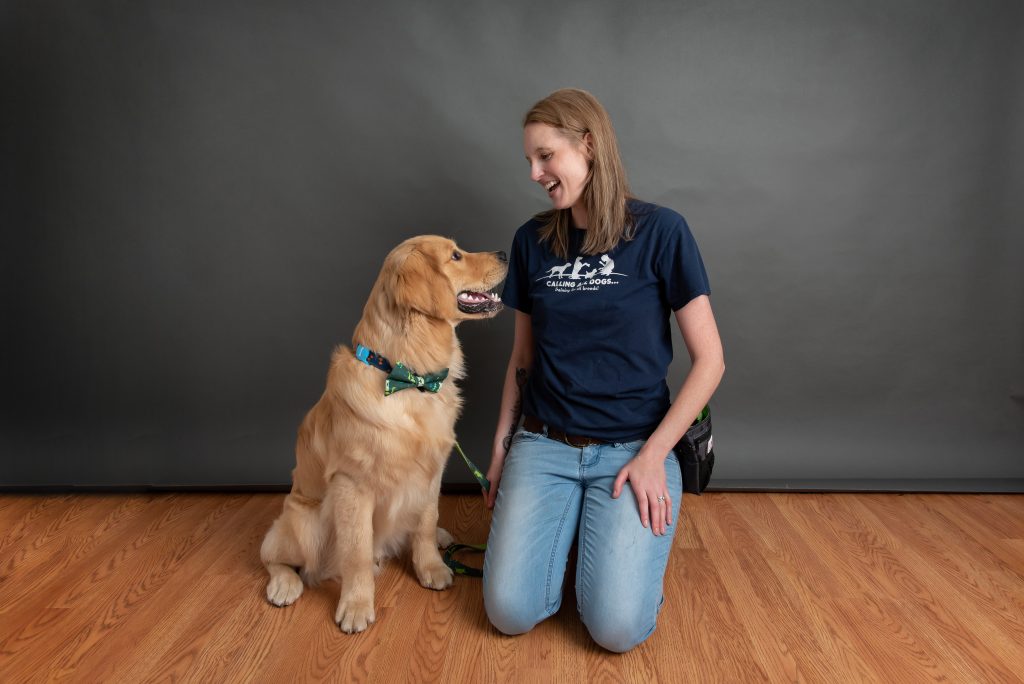10 Years of Calling All Dogs
This month marks a significant milestone – 10 years of Calling All Dogs’ dedication to helping dogs and their owners. Reflecting on a decade of devotion to dog training—focusing on fear, aggression, and raising puppies to be well-mannered adults—I aim to debunk some of the most common misunderstandings about dogs and provide deeper insights into their behavior.
Understanding Dog Aggression
The world of dog behavior is often misunderstood and oversimplified with labels like “dominant,” “stubborn,” or “alpha.” When your dog shows aggression, fear, or reactivity, it’s natural to feel confused and ask:
“What did I do wrong?”
But dog behavior is complex and influenced by more than just training or “how they were raised.”
Early Socialization and Its Impact
Proper early socialization—positive exposure to people, animals, places, and sounds—is crucial. A lack of socialization or overwhelming the puppy (called “flooding”) can lead to anxiety and aggression.
- A puppy rarely exposed to strangers or dogs might grow fearful and aggressive later.
- A puppy overwhelmed by chaotic exposure might see the world as unsafe and become defensive.
It’s Not All How They Are Raised
Just like physical traits, behavioral tendencies can be genetic. Dogs from lines with aggression issues may inherit those traits. Even a stressed mother can influence her puppies’ future behavior before birth.
Puppies born from stressed mothers may be more prone to fear and aggression.
The Role of Single-Event Learning
One traumatic experience can forever shape how a dog views a situation. For instance:
A dog attacked by another might become reactive to all dogs—even if others pose no threat.
This is called single-event learning—and it can cause deep behavioral imprints.
Aggression Often Stems From Fear
Aggressive dogs are often not “bad” or “mean”—they’re scared.
- A growl or lunge might be a dog’s way of saying: “Please go away—I’m scared.”
- They’d rather scare the threat away than retreat.
Pain-Induced Aggression
Pain is a common and overlooked cause of aggression. Examples include:
- Arthritis
- Dental issues
- Ear infections
- GI discomfort
A dog in pain may growl, snap, or bite—even if the issue is invisible.
Always consult a vet if your dog’s behavior suddenly changes.
Natural Behaviors and Resource Guarding
Resource guarding (over food, toys, people, etc.) is normal dog behavior in the wild—and sometimes in homes too.
- Dogs aren’t being “bad”—they’re being instinctive.
- The goal is to teach them that humans approaching a resource means something better (with professional help if needed).
Unfulfilled Breed-Specific Needs
Dogs were bred for specific jobs. If they’re not given outlets for those instincts, frustration and behavioral issues can follow.
Examples:
- Border Collies: May chase cats or lunge at cars due to herding drive.
- Great Pyrenees: Protective of strangers due to guarding background.
- Dachshunds: Prone to digging and chasing due to hunting history.
Ignoring a breed’s needs can result in unwanted behaviors.
The Lack of Professional Regulations
Sadly, dog training and behavior work is an unregulated field.
- Anyone can call themselves a trainer or behaviorist without formal qualifications.
- This puts dogs, owners, and the public at risk due to unqualified or unethical methods.
More Than Just a Decade of Dog Training
Despite the industry’s gaps, I uphold the highest standards of professionalism and ethics.
- Bachelor’s Degree in Psychology
- Thousands of hours working with fearful, reactive, and aggressive dogs
- Published in: IAABC Journal, APDT Chronicle of the Dog, BARKS From the Guild, Edition Dog Magazine
- Expert witness in Dangerous Dog Court Cases
- 2022’s #1 Dog Trainer in New York
- Mentor trainer for Victoria Stilwell Academy & Animal Behavior College
Professional Affiliations:
- International Association of Animal Behavior Consultants (IAABC)
- Certification Council for Professional Dog Trainers (CCPDT-KA)
- International Society of Animal Professionals (ISAP)
- Pet Industry Advocacy International
- International Canine Behaviourists (ICB)
- Animal Behavior College (ABCDT)
Celebrating a Decade
As we celebrate 10 years of Calling All Dogs, our mission is stronger than ever. By continuing to share behavior insights and promote expert guidance, we aim to give every dog and owner the tools for a better life—together.


2 Responses
Wonderful, Tori! Happy Anniversary!!
Thanks so much!